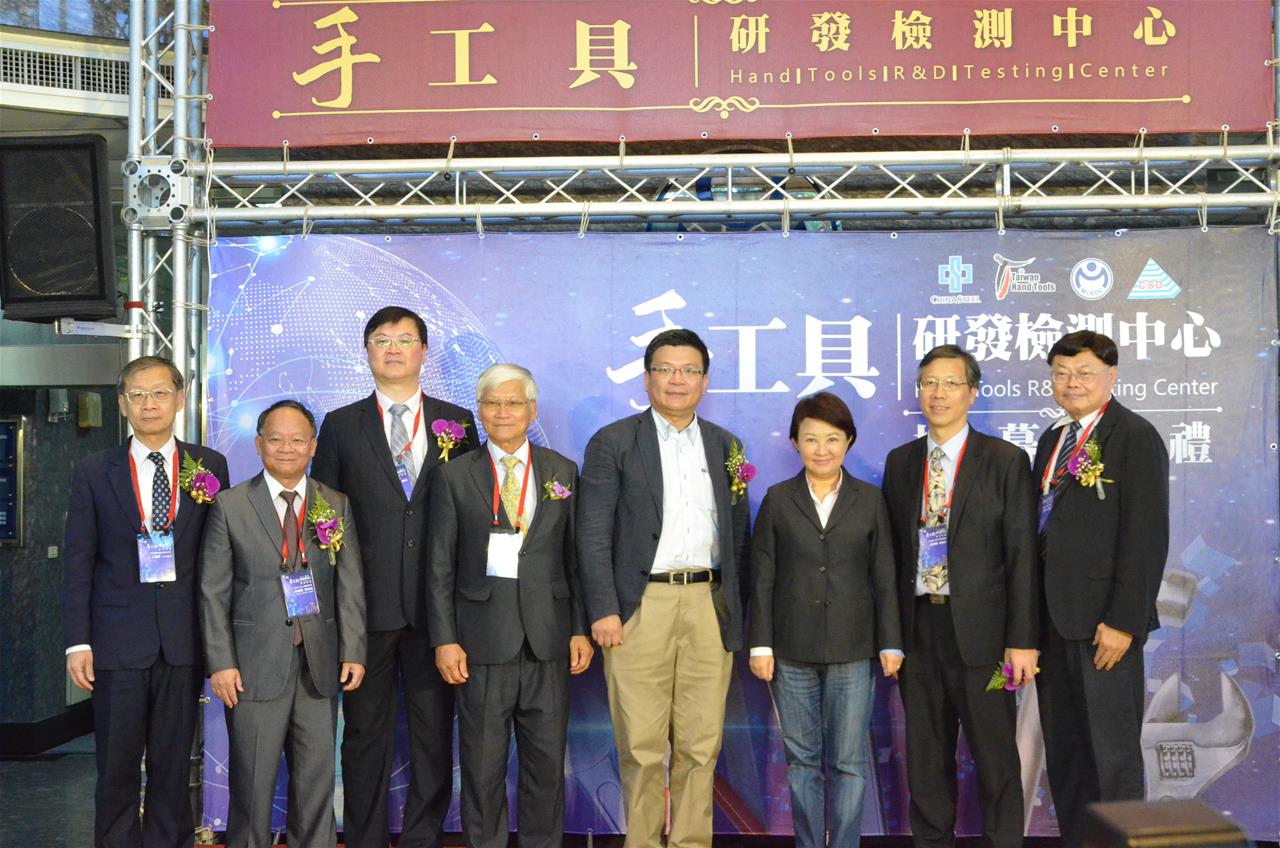
In 2018, the export value of Taiwan's hand tools reached a record high. It is an important high-value chain industry of Taiwan's steel industry. To help Taiwan's hand tools grow and fulfil the local industry chain services, China Steel Corporation, the Taiwan Hand Tool Manufacturers’ Association, the Metal Industries Research and Development Centre (MIRDC), and the Corporate Synergy Development Center (CSD) jointly established the Hand Tools R&D Testing Center. On May 31, 2019, Mr. Wen-Sheng Tseng, Deputy Minister of the Ministry of Economic Affairs, Ms. Shiow-Yen Lu, Mayor of Taichung, Dr. Ta-Sheng Lo, Director General of the Department of Industrial Technology, and Mr. Ming-Huan Chang, Deputy Director of the Industrial Development Bureau, jointly held the opening ceremony. In the future, the operation site will be set up in the MIRDC Intelligence and System R&D Service Department (in the Taichung Industrial Park), hoping to develop common technology in the industrial chain and lead Taiwan's hand tools industry to a new peak.
More than 90% of Taiwan's hand tools industry products are exported and is the second largest export industry for Taiwan's fabricated metal products. In the past five years, the export value has exceeded NT$100 billion. In 2018, the output value has reached NT$122 billion. The central region is where most Taiwan’s hand tool companies are located, but high-value development still faces severe challenges, including insufficient research and development from small and medium-sized enterprises, export prices that are far behind advanced countries and challenged by competing countries, the trade marginalization crisis, encountering challenges from emerging countries in major export markets, and the lack of professional R&D testing institutions, which is detrimental to the development of high value products.
In advanced countries, professional R&D and testing institutions are indispensable in the development of high value hand tools. For example, the FGW was established in Germany in 1952 to provide research and development and testing and accreditation services, establishing a professional brand image. As a result, Germany has now developed into the largest high-end hand tools export country. Taiwan, on the other hand, urgently needs to establish a professional hand tool R&D and testing institution to strengthen domestic technical cooperation and accelerate the overall upgrade and transformation of the industry.
Dr. Ren-Yi Lin, Chairman of MIRDC, said that in the face of global competition, high value and digital transformation of products is of key importance. Establishing the first professional R&D and testing institution for hand tools in Taiwan to provide the R&D and testing services needed for creating high value for the hand tool industry is imperative. In the future, the testing services to be provided include: chemical analysis of metal materials, mechanical properties testing, metallographic testing, precision measurement, and electrical safety and energy efficiency testing. Another R&D focus is on the development of next-generation products and the cultivation of the new generation of talent to help strengthen domestic material self-reliance and early prototyping capabilities, and to leverage the value-added benefits of the hand tool industry chain to help Taiwan's hand tool industry become the global benchmark.